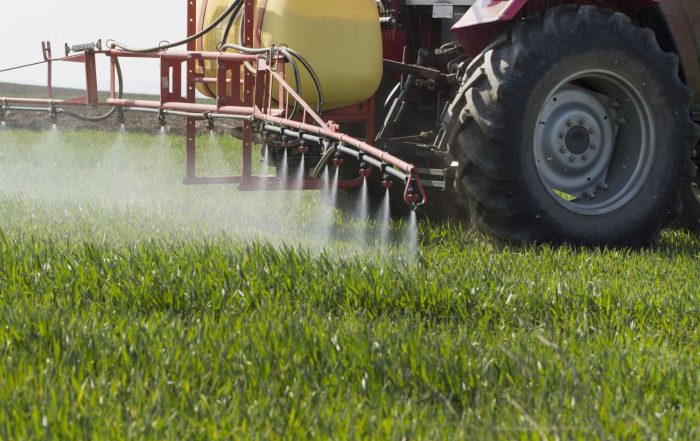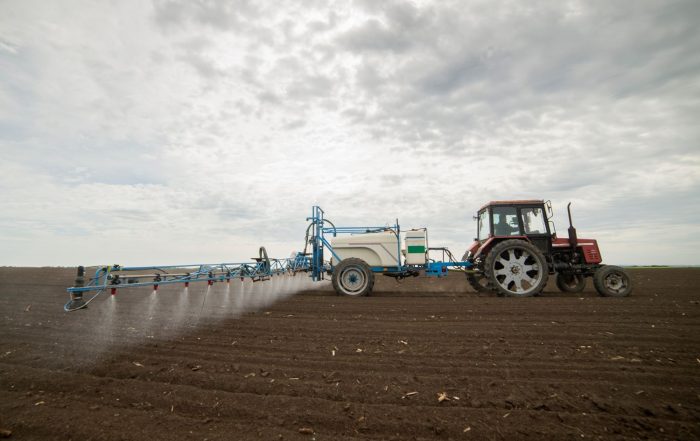Changing UK Policy
The UK Government is the key player in deciding how pesticides are regulated. While there are many other actors involved, it is the Government in Westminster who sets the rules for which pesticides are allowed to be used and how. They are also the key decision-maker on pesticides in food, setting limits for the amount of any pesticide that can appear in food and running the UK’s residue testing programme. Despite pesticides being a ‘devolved competency’ – meaning that, in theory, each of the devolved nations can choose its own path – the nations of the UK have opted to make joint decisions, at least for now.
Before EU exit, the responsibility for regulating pesticides largely sat in Brussels. So far, the UK has largely maintained the European approach to pesticide regulation that it helped to create as an EU Member State.
Although far from perfect, the EU’s pesticide regime is widely considered to be the strongest in the world in terms of protecting human health and the environment from the harmful impacts of pesticides. While there are some exceptions, UK pesticide laws remain similar to their EU equivalents on exit day. However, the EU is now pushing forward a range of progressive new initiatives designed to increase protections for human health and the environment, from which the UK will no longer benefit.
Meanwhile the UK Government appears to be turning its attention towards deregulation. In addition, there is a major risk that post-Brexit trade deals with non-EU countries will undermine UK pesticide standards.
As the gap grows between EU and UK rules on pesticides, there is a real danger that the UK is being left behind.
What are PAN UK’s priorities?
- Make sure that that the UK’s new standalone pesticide regime is fit-for-purpose in terms of protecting health and environment.
- Put in place the measures needed to drive a massive reduction in UK pesticide use, including well-designed pesticide risk reduction targets.
- Protect UK pesticide standards from being undermined by Free Trade Agreements with non-EU countries.
- Ensure that farmers are supported by the UK government to transition away from harmful pesticides and adopt non-chemical alternatives.
What’s at stake for the environment?
Thanks in part to the massive increase in pesticide use in recent years, the UK’s environment is at crisis point. Pesticides have contaminated much of our soil and water and are devastating populations of birds, bees and other wildlife.
The government promised a ‘Green Brexit’ and pledged to be the first to leave the environment in a better state than they inherited it. But without strong pesticide laws, and significant government support for non-chemical alternatives, nature won’t recover.
If the government is serious about achieving the long-term goals it set out in its 25 year environment plan – including thriving wildlife and clean water and soil – then it must ensure that the environment is protected from pesticides.
What’s at stake for human health?
There is a growing body of evidence linking pesticides to a range of serious health problems including cancer, Parkinson’s, asthma and depression and anxiety. In the UK, we are constantly exposed to pesticides through our diets, as well as via spraying on farms in rural areas and by local councils and other land managers in urban spaces.
The UK regulatory system is woefully inadequate in terms of protecting human health from pesticides. Pesticide poisoning incidents are rarely investigated and there is no systematic monitoring of the health impacts resulting from long-term pesticide exposure. Safety limits for residues in food are set for just one pesticide at a time, ignoring the evidence that chemicals can become more harmful when combined. The UK Department of Health and Social Care continues to ignore pesticide-related harms, denying that pesticides are a health issue.
We urgently need the UK Government to take the health impacts of pesticides seriously and put in place the measures needed to protect children, workers and the general public from pesticide-related harms.
What’s at stake for food and farming?
The UK has always supported a model of industrial-scale farming which requires large amounts of pesticides. This has meant that much of the food we grow (particularly fruit and vegetables but also meat, dairy and cereals such as wheat) contains residues of multiple pesticides, and the number of different chemicals being used appears to be rising.
Since leaving the EU, the UK Government has committed to reducing the environmental impact of agriculture, promising to pay farmers public money for ‘public goods’. This would mean that farmers working hard to reduce their pesticide use and practice truly sustainable techniques, such as Integrated Pest Management and organic agriculture, would receive the subsidies and support they deserve. If designed properly, it could also bring the cost of good quality food down and enable everyone to access it, regardless of their financial situation.
The Government has also promised to protect UK food standards from being undermined by trade deals with large agricultural producers such as the US and Australia that have weaker pesticide standards.
If we strengthen the UK’s pesticide laws, protect our standards from being undermined by trade deals and bring in new support for farmers producing sustainably then we can create a world class food system which delivers for farmers, the environment and consumers in the UK and beyond.
Change the system – what can you do?
PAN UK works hard to influence all UK regulations and policies related to pesticides to make sure that the protection of human health and the environment is prioritised. When it’s most strategic, we help mobilise people to tell politicians that they want less pesticides in UK food, farms and urban public spaces.
It’s vital that the UK Government, MPs and other decision-makers hear from you to counter the pressure they receive from pesticide companies and the agribusiness lobby. We will let you know when to contact decision-makers in order to have the greatest possible impact. Keep an eye out for our campaign actions by signing up to our mailing list or by following us on Facebook, Twitter or Instagram.
If you want to do something now, you can visit your local MP at one of their regular ‘surgeries’ and explain your concerns. Do feel free to contact PAN UK for advice before your meeting, or afterwards to let us know how it went.
Find out more about…
- the UK National Action Plan for the Sustainable Use of Pesticides (NAP)
- the issues facing UK food and agriculture around Brexit
- the hidden rise of UK pesticide use
- the laws in place to regulate pesticides in the UK
- the difference between hazard versus risk approaches to regulating pesticides
- the target that needs to be introduced for pesticide reduction
- the ways in which pesticide policies can be a tool for implementing the 25 Year Environment Plan
- the threat herbicides pose to bee and pollinator survival
- the adoption of Integrated Pest Management in UK agriculture
- the Environmental Land Management Scheme
- the policy briefing on securing and strengthening UK pesticide standards in 2020
- the policy options for reducing environmental risks from pesticides in the UK
- the trade deals currently being negotiated by the UK


